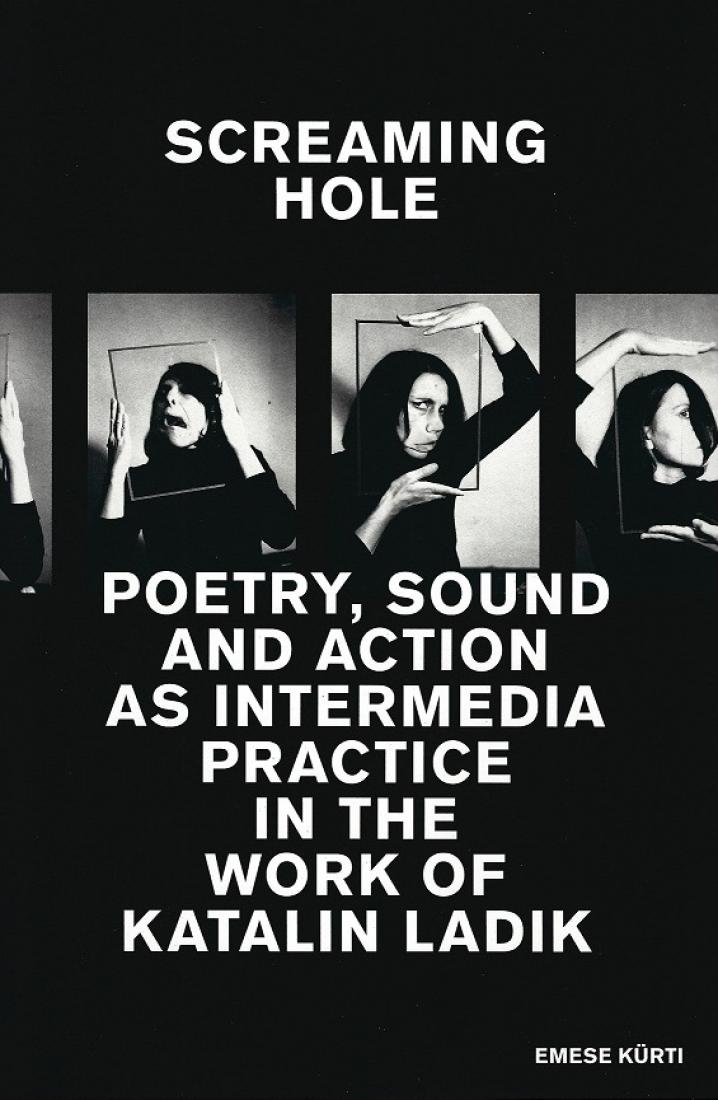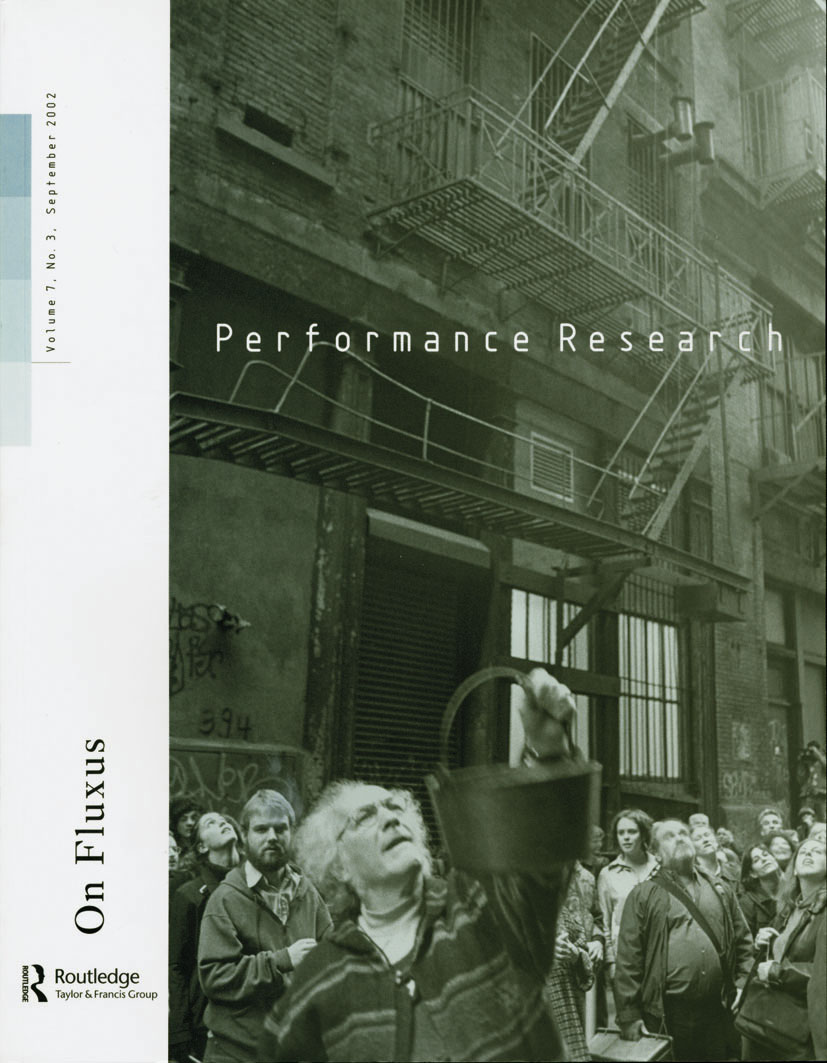Emese Kürti: Screaming Hole: Poetry, Sound and Action as Intermedia Practice in the Work of Katalin Ladik (2017)
Filed under book | Tags: · action art, art criticism, art history, hungary, intermedia, neo-avant-garde, performance art, poetry, serbia, sound art, yugoslavia

“This book focuses on the experimental practice of Katalin Ladik, a poet, performer and actress born in the former Yugoslavia. Her career as a poet writing in Hungarian language began in the intellectual circles of the neo-avant-garde journal Új Symposion (New Symposium) in Novi Sad, but the subversiveness of her feminine practice gave her a distinctive position in the whole Yugoslav neo-avant-garde scene as early as the late 1960s. At the same time, linearity was also being replaced in Ladik’s poetic works by an extended notion of poetry, as she realised her actionism in a complex and mutual intermedial relationship between poetry, sound and visuality. Her performances attracted lively attention not only on account of an interpretation of poetry and sound that was radically new both in Yugoslavia and abroad at the time; her use of the eroticized body also seemed to lack any predecessors in the local avant-garde of the day. Katalin Ladik, who synthesized the traditions of Balkan folk music and Hungarian folklore, could work supraethnically, as it were, in this multiethnic Yugoslav context, using the references of multiple cultures, which suited with persistently international spirit of the avant-garde.”
Translated by Katalin Orbán
Publisher acb ResearchLab, Budapest, 2017
ISBN 9789631283617, 9631283615
247 pages
via Author
PDF (36 MB)
Comment (0)Marc James Léger (ed.): The Idea of the Avant Garde: And What It Means Today (2014)
Filed under book | Tags: · activism, aesthetics, architecture, art criticism, art history, avant-garde, film, intermedia, literature, music, performance, photography, theatre

“This book is premised on the view that the idea of the avant garde has an increased importance in these times of global political crisis. Much cultural production today is shaped by a biopolitics that construes all creative and knowledge production in terms of capital accumulation. A different kind of culture is possible. This collection of writings, essays, interviews and artworks by many of today’s most radical cultural practitioners and astute commentators on matters avant garde mediates the different strategies and temporalities of avant-garde art and politics. Tracing diverse genealogies and trajectories, the book offers an inter-generational forum of ideas that covers different arts fields, from visual art, art activism, photography, film and architecture, to literature, theatre, performance, intermedia and music.”
Texts by Marc James Léger, Adrian Piper, Andrea Fraser, David Tomas, Catherine Lescarbeau, Hal Foster, Laura Mulvey, Bruce LaBruce, Santiago Sierra, Derek Horton, Christine Wertheim, Lyn Hejinian, Marjorie Perloff, Wu Ming 2, Nikolaus Müller-Schöll, Rabih Mroué, Judith Malina, Moe Angelos, Bill Brown, The Errorist International, Jonas Mekas, Thomas Elsaesser, Alexander Kluge and Oskar Negt, Travis Wilkerson, Evan Mauro, Mikkel Bolt Rasmussen, Gene Ray, John Roberts, Zanny Begg and Dmitry Vilensky, Owen Hatherley, Michael Webb, Mitchell Joachim, Beatriz Colomina, Boris Groys, Vitaly Komar, Victor Tupitsyn, Gregory Sholette and Krzysztof Wodiczko, Critical Art Ensemble, BAVO, Alexei Monroe, Jean-Hervé Péron, Chris Cutler, Charles Gaines, Jason Robinson, Sara Marcus, Cosey Fanni Tutti, Thanos Chrysakis, Kim Cascone, Marc Couroux, Thérèse Mastroiacovo, Chrysi Papaioannou, and Bill Dane.
Publisher Manchester University Press, Manchester, with Left Curve, Oakland, CA, 2014
ISBN 9780719096914, 071909691X
285 pages
Editor
Exhibition (2018)
Publisher
WorldCat
PDF (16 MB)
Comment (0)Performance Research 7(3): On Fluxus (2002)
Filed under journal | Tags: · art history, fluxus, intermedia, performance

“To mark the 40th anniversary of the first Fluxus festival in Wiesbaden, Germany, and the 30th anniversary of Fluxshoe which toured England with a series of performances, concerts, and exhibitions (1972–3), ‘On Fluxus’ continues the volume theme of ‘textualities, scores and documents’ and focuses on the relationship of writing and textuality to Fluxus. Fluxus was an international community of artists, architects, designers, and composers described as ‘the most radical and experimental art movement of the 1960s’. As a laboratory of experimental art, Fluxus was the first locus of intermedia, concept art, events, and video, and a central influence on performance art, arte povera, and mail art.”
Issue editors: Ric Allsopp, Ken Friedman & Owen Smith
Publisher Routledge, September 2002
ISSN 1352-8165
142 pages
PDF (38 MB)
Comment (0)
